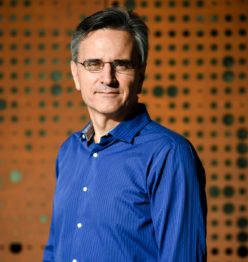My goal as a teacher is to help students to develop the capacity to pursue lifelong learning and become valuable members of their work communities. As such, I seek to help students master a range of transferable skills, while obtaining broad scholarly knowledge. This provides students with the intellectual skills, versatility, and knowledge necessary to succeed in their professional, personal, and public lives.
In order to develop these skills my teaching centers on three goals. My chief objective is to encourage students to challenge their assumptions and think critically; to paraphrase Neil de Grasse Tyson, we must help our students become simultaneously skeptical of claims while embracing the weight of evidence. The capacity to think systematically about social and economic issues in a broadly comparative manner is a life skill that all students will find useful regardless of their careers. Second, I believe that our understanding of specific phenomena needs to be placed within a broader context. Understanding how public and private actors interpret policies and actions and how the latter interact with other policies, social norms, political institutions, and the interests of relevant actors are critical elements in designing solutions. Third, I seek to encourage students to participate actively in their own education by shaping course content to meet their interests and provide opportunities for enquiry-based learning.
